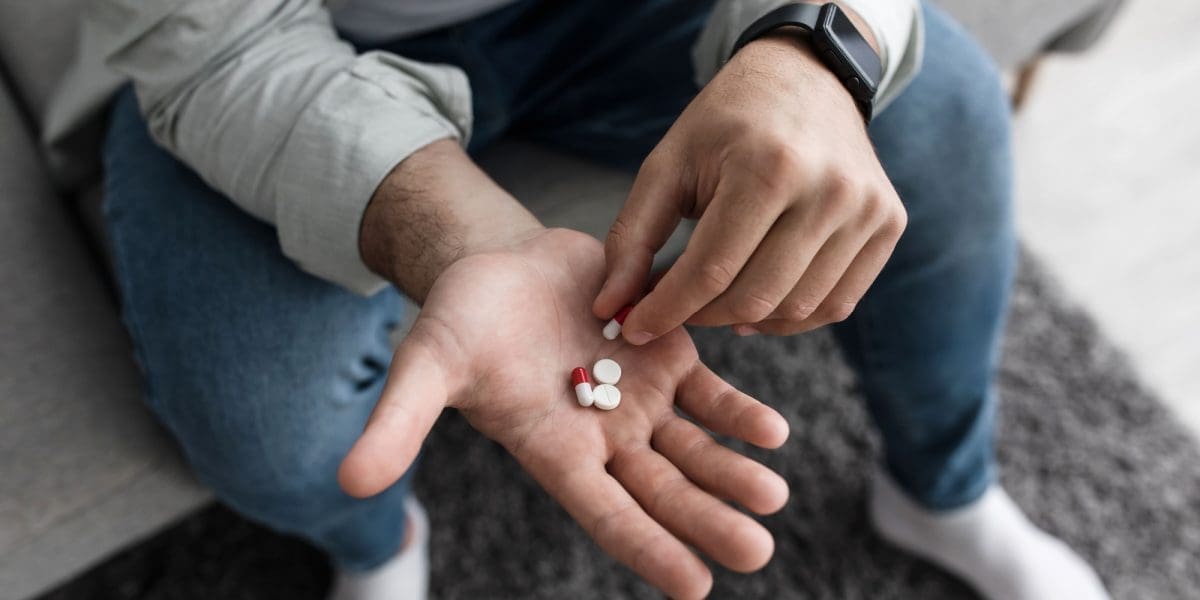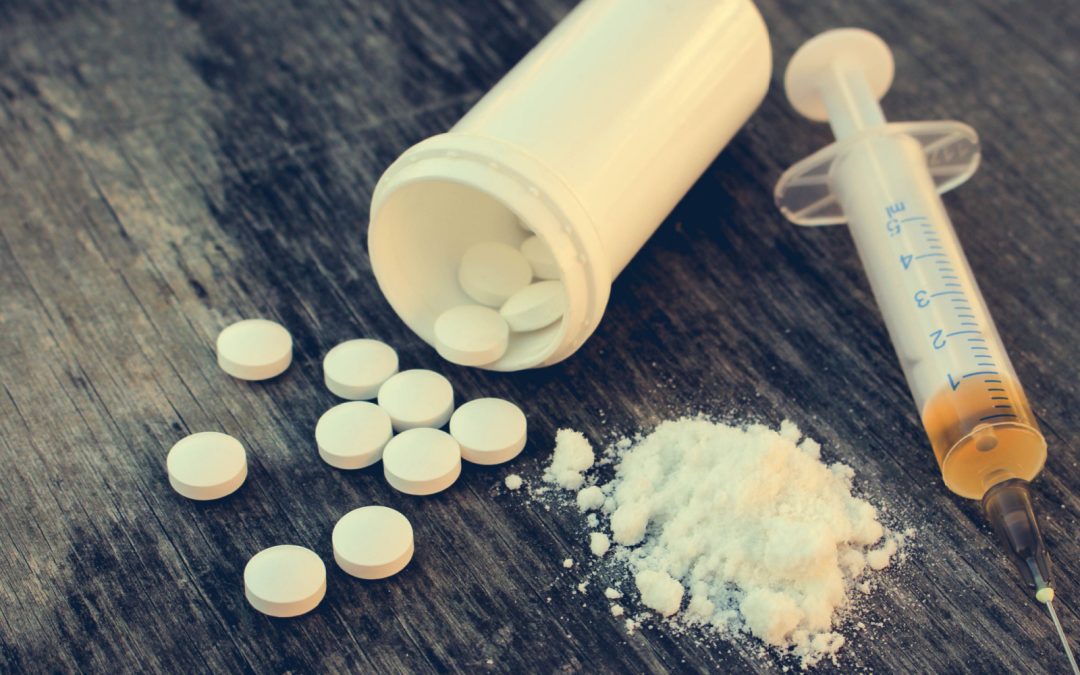Knowing the signs of overdose can help you or a loved one get the necessary medical help before it’s too late. With early intervention and proper medical support, some overdoses can be reversed. However, a variety of factors can impact the outlook of recovery. As a result, getting help for addiction and mental health problems before an overdose can prevent experiencing one in the future.
Below you will learn about the different signs of overdose and the treatment options available to you. Start your recovery journey now to keep yourself safe.
What Does It Mean to Overdose?

An overdose refers to when someone ingests a toxic amount of a substance or combined substances. Whether it’s prescription drugs, over-the-counter medication, or illicit substances, taking too much can result in harmful or deadly side effects. This occurs when the body is unable to metabolize what is ingested and in turn interferes with the brain and body’s ability to function. Not every overdose is fatal; however, overdose-related toxicity can cause a variety of short-term and long-term health consequences.
The signs of overdose vary from person to person and can sometimes be hard to distinguish from less severe side effects of drug use. Some signs of overdose are obvious with noticeable symptoms that require immediate medical attention. But other symptoms of overdose are more subtle or mild and may take longer to progress. No matter how they appear, an alcohol or drug overdose is serious. Timing is a critical factor in preventing an overdose death. Therefore, always call 911 if you suspect someone is exhibiting signs of overdose.
Overdose Risk Factors
According to the CDC, over 100,000 drug overdose deaths occurred in the United States during a 12-month period that ended in April 2021. Many of these overdose deaths are the result of synthetic opioids such as fentanyl. However, other substances including methamphetamine and cocaine also contributed to a significant rise in overdose deaths. Moreover, many mental and environmental risk factors contribute to these deaths. These risk factors include:
- Low drug tolerance levels
- Mental health issues
- Not knowing the strength or ingredients of a substance
- Mixing substances
- Using alone
Additional overdose risk factors include:
- The substance(s) ingested
- How much was taken
- How the substance was taken
- Age of the person
- Current state of health
Some of these risk factors are difficult to identify. For instance, many illicit substances are unknowingly cut with fentanyl. As a result, many individuals ingest drugs more potent than anticipated. This often leads to an accidental overdose that causes long-term health effects or death.
With that said, the most effective way to prevent an overdose is to stay away from dangerous substances and to follow prescription instructions on all medication labels. However, this can be difficult for those already struggling with drug addiction. If you are seeking help to reduce your risk of overdose, The Willough at Naples has the resources and support you need. It’s never too late to begin your recovery journey.
The Warning Signs of Overdose
The signs of overdose vary according to the substance or substances used. Moreover, all symptoms of an overdose depend on a variety of factors. You may also struggle to seek help if you’re experiencing an overdose-related medical event. This can be dangerous and scary, especially if you’re alone. However, knowing the signs can help you or a loved one know when it’s time to seek medical attention.
Signs of alcohol overdose include:
- Mental confusion or stupor
- Lack of responsiveness
- Slow or stopped pulse
- Breath is slow or following an irregular pattern
- Clammy and discolored skin
Signs of opioid overdose include:
- Loss of consciousness
- Choking, gurgling, or snoring
- Pinpoint pupils
- Slowed or stopped breathing
- Lips or fingertips appearing blue or purple
Symptoms of stimulant overdose include:
- High body temperature
- Hyperventilation
- Increased or irregular heartbeat
- Heart attack, stroke, or other cardiovascular events
- Seizures or convulsions
- Paranoia and other symptoms of psychosis
- Aggressive behavior
Symptoms of depressant overdose include:
- Vision problems
- Extreme weakness
- Loss of consciousness
- Confusion and lack of alertness
It’s important to note that individuals who have experienced an overdose are at a higher risk of overdosing again in the future. Therefore, getting the help you need before experiencing an overdose can prevent you from experiencing one.
What to Do When Someone Shows Signs of Overdose
If you suspect someone is showing signs of overdose, even if you’re unsure, call 911 immediately. Some individuals may be hesitant to report an overdose out of fear of punishment. However, Good Samaritan laws protect individuals who call 911 or administer Narcan from legal consequences and encourage more people to report overdoses.
After calling 911, you will need to tell the operator what you know including what substances they may have taken and whether they are conscious and responsive. If the person is no longer breathing, the operator will walk you through rescue breathing, commonly known as CPR. From here, they will give you further instructions on what to do until help arrives.
Opioid overdoses can be treated with Narcan (naloxone). Administering Narcan can potentially reverse the effects of an opioid overdose and save someone’s life. If the person does not respond within two to three minutes, administer another dose. Strong opioids such as morphine, oxycodone, and fentanyl may require multiple doses administered every two to three minutes until emergency responders arrive.
Keep in mind it will not have an effect if opioids are not present in their system. This means it’s safe to use on someone who isn’t overdosing on opioids. But it’s still necessary to find the underlying cause of the symptoms. Moreover, administering Narcan does not guarantee an overdose can be stopped but it can reduce long-lasting damage if administered in time.
No matter the case, always call 911 in the event of a suspected overdose. You may save someone’s life.
Recovery Options Following the Signs of Overdose

Addiction recovery can be difficult when you’re learning to manage a co-occurring mental health disorder. That’s why The Willough at Naples provides a comprehensive dual diagnosis program for adults starting recovery. Each treatment plan is designed to meet the individual needs of patients for effective long-term recovery. If you’re struggling with addiction or substance dependence in addition to psychiatric illness, treatment options available through inpatient or partial hospitalization programs can reduce your risk of a future overdose.
Recovery following the signs of overdose often begins with medical drug and alcohol detox. Here, patients receive 24/7 care and monitoring as they undergo withdrawal. Individuals who complete a medical detox program are less likely to relapse than those who don’t. Moreover, this reduces your risk of future overdose. Withdrawal can be unpleasant, and in some cases, life-threatening. As a result, it’s recommended you start with a medical detox rather than attempting to start recovery by quitting cold turkey at home.
After completing detox, patients begin the next phase of their treatment. This part of recovery consists of a variety of therapeutic techniques and additional mental health and addiction resources.
Evidence-based treatment modalities at The Willough at Naples include:
- Cognitive behavioral therapy
- Family education
- Recreational therapy
- Group therapy
- Medication evaluation and management
- Relapse prevention
- Link to community-based services
At our Florida addiction treatment center, treatment is provided by a multidisciplinary team comprised of psychiatrists, nurses, mental health professionals, and more. Your emotional and physical well-being is at the forefront of your recovery to maximize your ability to achieve long-term sobriety and mental wellness.
Overdose and Addiction Treatment in Naples, Florida
Now that you know the signs of overdose, you may be ready to seek help to reduce your risk of experiencing one. To start recovery, get in touch with the admission experts by calling 800-722-0100 or submitting a confidential contact form online. The nurturing, retreat-like nature of our treatment center will provide the peace you need to take the first step in your recovery journey.

